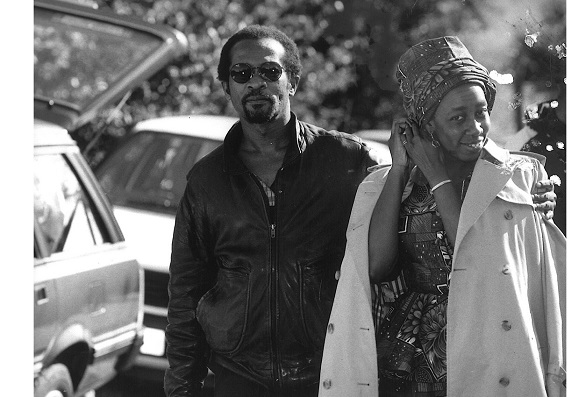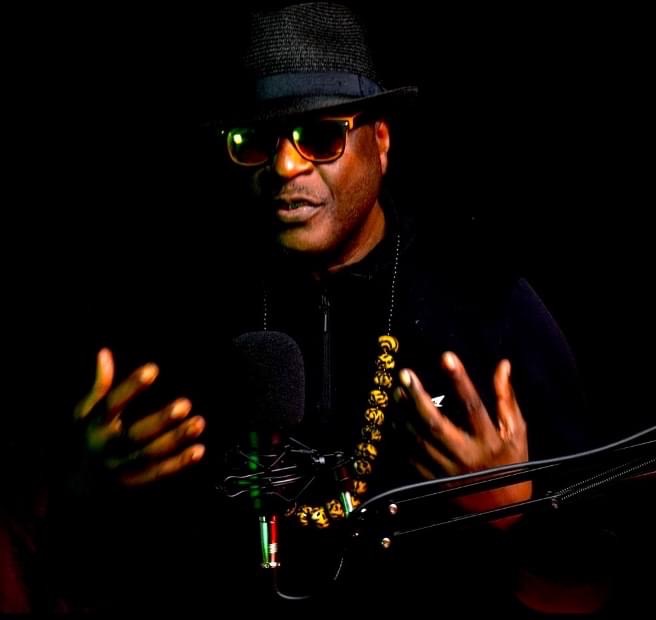
Of Ama, magical realism and the return
Patrons of this year’s New York African Film Festival in May would have the chance to see Ama, a film first released in 1991 and shown there in 1994 but is back for another lease of life, by courtesy of the directors, Kwesi Owusu and Kwate Nee-Owoo.
Advertisement
The message remains the same. However, after that sort of span after it was initially produced, like a human being, it gets old. So for the directors, it was about restoring the film, propping up the colours and then putting in other visual and audio elements that they believe will enhance it for a contemporary audience.
Written by Kwesi Owusu, the film was widely described at the time of release as one of cinema’s few works of magic realism. Set in London, it is a narrative that hinges on the ancient Akan belief of ancestral visitation, spiritual prophecy and reincarnation.
It tells the story of an African (Ghanaian) family called Ababio (he who has returned), caught up in the cultural melting pot of cosmopolitan London with little hope of returning to Africa and trying to come to terms with the situation.
Ama, the youngest in the family, discovers a floppy disc at an English countryside which she later inserts into a computer at her mother’s work place. That sets her off as the bearer of an unsettling ancestral prophecy that has crucial consequences for the entire family.
The film’s cast includes Anima Misa , Alexandra Duah, Evans Nii Omar Hunter , Georgina Ackerman, Thomas Baptiste, Eddie Tagoe, Roger Griffiths and the Adzido Pan African Dance Ensemble. The production crew included Albert Bediako, Nii Laryea Korley and Charles Acquah.
“When we shot the film, there were no drones. We did the high-angle shots using cranes and it took a long time getting over with just a few shots. With drones now, one can do a lot more so in the beginning of the film now, we have introduced some eye-catching drone shots,” says Kwesi Owusu.

“Also with Ama in the forest, we have introduced a few other shots which really enhances the drama in many ways. We also added some new shots to the London Carnival sequence.
So as directors, we have gone through the film carefully to see where to add some visuals and music as well. We are happy with the result.”
Also happy that Ama is coming back to the big screen is the well-known Ghanaian writer and cultural critic, PaJohn Dadson. He lived in London at the time of the film’s release and remembered being among the early curious folks to see it.
“When Ama came out, it was quite an exciting time for African creativity. I was a young reporter with the fortnightly ‘Ghana Weekly News’ and used to circulate at the Africa Centre, the School of Oriental and African Studies and the Sterns records shop on Tottenham Court Road.
“ It was big news with posters all over those places. I eventually saw the film at the Electric Cinema on Portobello Road. I remember there was a lengthy applause at the end,” PaJohn Dadson said.
Something Kwesi Owusu says about the film is that there are issues in it that are still relevant. He referred to the whole issue about how Africans transmit their culture today.
“I remember when the film was shown in Accra in 1991, there was this big debate on if our ancestors want to speak to us, there was no way they would do that through a computer. What we are saying is that our ancestors are contemporary. They are not locked up and frozen in a museum.
“I, for instance, know everything about technology today so if I pass on and want to send a message to someone, I would use a technology the person is familiar with. It could be Facebook, Snapchat, Instagram or WhatsApp. It definitely would not be like through the old derogatory whip or horsetail or whatever.”
Another aspect of Ama still relevant now is the whole idea of the Ghanaian or African in the diaspora and their relationship with home. There are Ghanaians in the diaspora building massive houses in Ghana and a lot of them don’t even live in them or might never even live in them because their lives are elsewhere. So the whole issue about returning home at a point is still important and that might pull audiences to the film.
Apart from the New York African Film Festival, the film’s directors plan to show it in Ghana and London. They say there are already requests from other film festivals around the world to include it in their programming.
“It is an old film but a new release,” the directors say.




